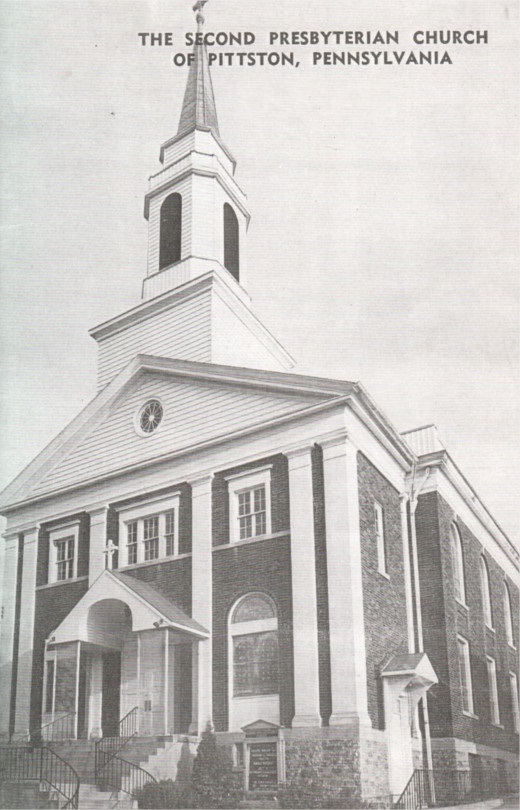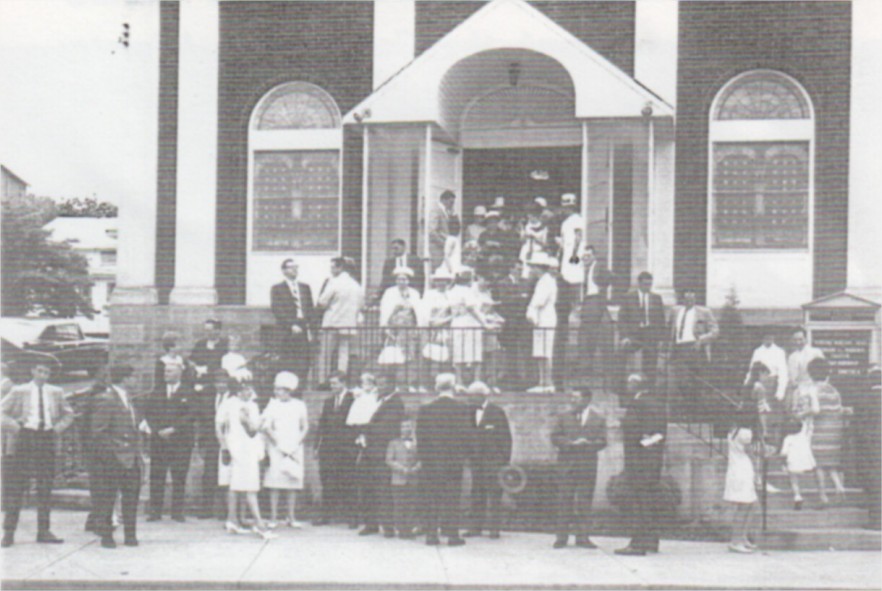Our History & Hertiage
At the close of the nineteenth century, thousands of Italian immigrants settled in the anthracite region among the beautiful hills and valleys of Lackawanna and Luzerne counties in northeastern Pennsylvania.

Like the early pioneers, the Italian immigrants were common working people who came to America seeking better opportunities than their native land offered them. Most of the people who settled in the vicinity of Greater Pittston were engaged to work long hours for small wages as low as a dollar per day, digging coal in the mines and doing other work around the coal collieries.
Although most of the early Italian immigrants were Roman Catholic, there were a few Protestants among them. These Italians lacked leadership, so according to God’s providence a few American Protestant people with the influence of Rev. D’Anna became actively concerned about the spiritual welfare of the new settlers in Greater Pittston. Later the attention of the Lackawanna Presbytery was called to the matter; and in the summer of 1892, Rev. D’Anna, a Protestant Italian missionary, was sent from the Scranton by the Presbytery to determine the religious needs of these people in Pittston and the surrounding communities. The beginning of this survey was initiated by following recommendation as written in the Session minutes of the First Presbyterian Church, West Pittston, Pa., December 2, 1892: “The Rev. Swan, Pastor of the First Presbyterian Church in West Pittston, stated the object of the meeting; and the Rev. D’Anna gave a short talk about his experiences in visiting the Italians in this locality. On motion, it was resolved that the East and West Side Presbyterian Churches agree to sustain the Italian Missionary in this field at an expense of twenty-five dollars per month for four months in order to give the matter a fair trial.”

The preaching of the Gospel of Christ and the Good News of God’s salvation in the Italian language was welcomed by many Italians. In view of such a response, the efforts to evangelize the Italians were increased; and during the year 1893, Mr. Joseph Vitale was called to promoted this mission work. Mr. Vitale, when called to evangelize among the people, was not an ordained minister but a humble layman converted not long before to the Protestant faith. Because of his devotion, zeal and sincerity, Mr. Vitale was taken under the care of the Lackawanna Presbytery as a candidate for the ministry at the Presbytery meeting held in Athens, Pa., on April 12, 1893. He was granted a special license to labor under the direction of the pastors and Sessions of the Pittston and West Pittston Presbyterian Churches until the next stated meeting of Presbytery. He was also placed under the pastoral care of the Rev. I. W. Swan and he pursued his studies of the Protestant faith to prepare himself for full ordination which took place during the Presbytery meeting on the evening of April 20, 1898, in the Green Ridge Presbyterian Church, Scranton, Pa. Rev. Vitale became the first ordained minister to the Italian Mission. Hi[s first sermon, which was spoken in English and then in Italian, was based on Acts 8:39: “And when they came up out of the water, the Spirit of the Lord caught up Philip; and the eunuch saw him no more and went on his way rejoicing.”
During the ministry of the Rev. Vitale many families were added to the membership of the Mission and in his untiring zeal, he did a splendid work as a minister for several years conducting religious services for the adults and a Sunday School for the children.

The first Sunday School classes were conducted at the pastor’s home at Prospect Place by Rev. Vitale and Miss Caro R. Strong. Later, as the number of students increased, the school held its sessions in a store room near the west end of the Fort Jenkins Bridge, which was sublet at a nominal rental fee.
In the spring of 1899, the Rev. Vitale resigned his missionary work with the Italian Mission; and the Rev. A. Milanesi succeeded him until the spring of 1904.
